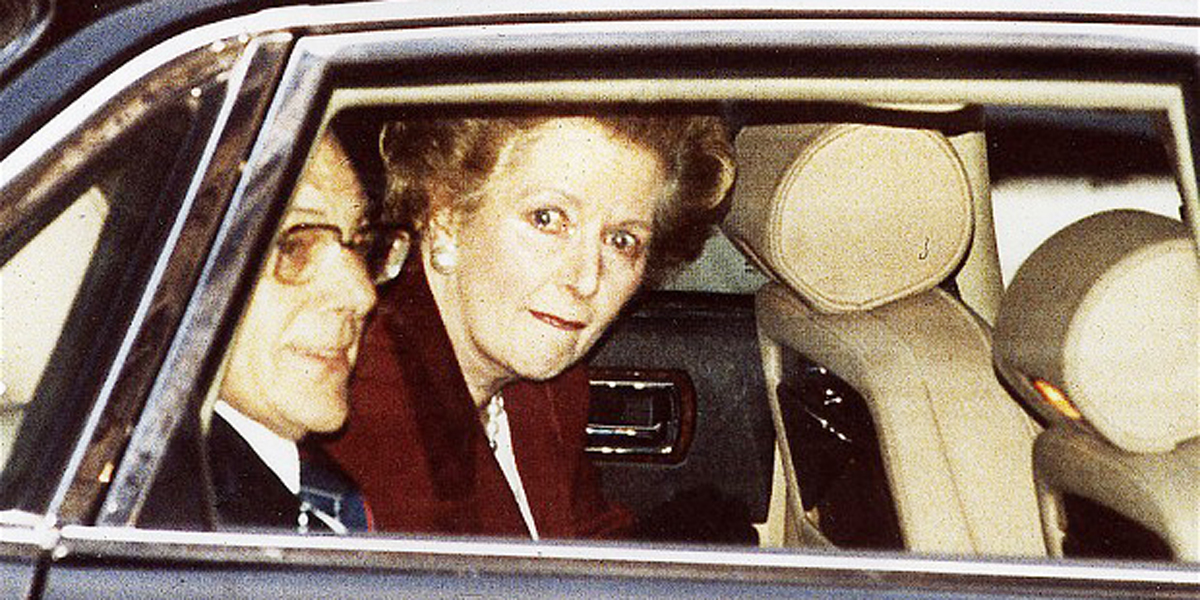I’VE never seen anything like it. On Facebook, on Twitter, there was instantaneous reaction. Comment after comment, tweet after tweet. You’d think the death of someone whose political career ended decades ago would have been greeted with a shrug. Not so Maggie Thatcher.
Comment after comment, tweet after tweet expressing pleasure, nay delight, at the death of an 87-year-old woman who’d been suffering for years with Alzheimer’s. Litanies of curses, talk about gathering in a pub to celebrate, the posting of anti-Thatcher songs – wave after wave of joy. An occasional voice would be raised calling for ‘dignity’ or ‘compassion’, but that was rebutted by another list of Thatcher sins. Remember that sympathetic image of her presented in a film a year or two back? Gone. Totally washed away. People sounded as if they meant it when they talked about dancing in the street or even on Thatcher’s grave.
Why this outpouring of delight at a death? Because Maggie Thatcher created so much unforgiving enmity on so many fronts. She voted for the restoration of birching in 1961. She was a founding member of the Anglo-Israeli Friendship League of Finchley and a member of the Conservative Friends of Israel. As Education Secretary in Ted Heath’s government in the early 1970s, she soon had England’s children chanting “Thatcher, Thatcher, milk snatcher!” when she abolished free milk for children between 7 and 11. When she became British Prime Minister she inherited a Britain which was broken and replaced it with a Britain driven by greed and selfishness. Remember the TV character Loadsamoney? That epitomised the spirit of the age. A decade or so later the south of Ireland caught the disease with its Celtic Tiger.
She destroyed the livelihood of thousands of British workers and shattered the very communities in which they lived. She made political decisions which resulted in policemen on horseback charging down striking miners. She claimed some windswept islands thousands of miles away as British and gave orders for the deaths of all on board the Argentine vessel Belgrano, even though it was sailing away at the time. When some journalists questioned her about this action she berated them and told them to rejoice at its sinking, as she did. She spoke of the Long Kesh hunger strike as the last sting of a dying IRA wasp and of the hunger strikers as common criminals. In support of those claims she allowed ten men to die. She told the British population that there was no such thing as society, only people and their families.
Since death comes for us all, it’s normally hard not to feel some sympathy for the deceased. I confess when I search my own heart I find in it very little warmth, let alone forgiveness. It’s wrong, of course, but the woman presented a stony and brutal face to Ireland and most of Britain north of Birmingham. When your political deeds prompt songs not of admiration but execration on both sides of the Irish Sea, you know that some deep and lasting damage has been inflicted. Maggie Thatcher has left a legacy all right, but it’s one of bitterness and contempt.
And yet it all started so mildly. I can still see her standing as PM on the steps of 10 Downing Street for the first time. She was talking to reporters and in the background hecklers bayed and jeered. Struggling against the noise, Thatcher chose to recite her version of the Prayer of St Francis of Assisi: “Where there is discord, may we bring harmony; where there is error, may we bring truth.”
Some prayers, it appears, just don’t get answered.
Blog: judecollins.com






